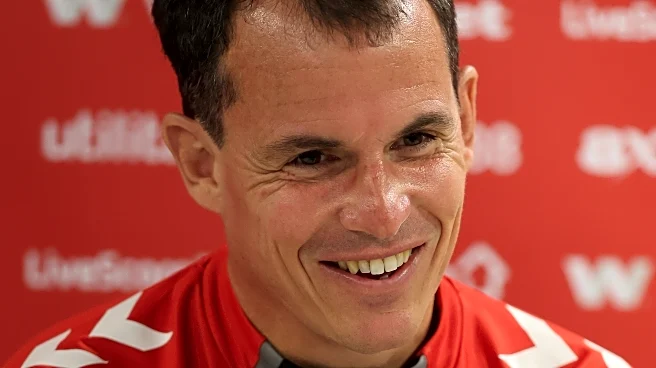Against Liverpool at Turf Moor last Sunday, Burnley would’ve been more than good value for a point on the balance of the ninety minutes — until a late moment of madness from Hannibal cost them a penalty
and a superb draw with the league leaders.
The Clarets had been disciplined, resilient and immensely spirited until Mo Salah broke their hearts from twelve yards, but that didn’t stop those of a red persuasion (and others) wheeling out the usual tropes about “putting all of your players behind the ball” as well as Liverpool’s dominance in possession and what it said about Burnley’s approach.

We’re just over a month into the new season and with the fortunes of the newly-promoted teams fluctuating somewhat, does it feel a bit early to be talking about the aesthetics of games featuring Leeds, Burnley and ourselves, and is it merely a case of snobbery as fans of the league’s powerhouses express indignation if their team isn’t allowed to steamroller a so-called lesser opponent?
From a Sunderland point of view, it’s a simple equation and will remain so for the remainder of the campaign.
I don’t give a damn what kind of ‘block’ (low, underground, or subterranean) we deploy, how much possession we may enjoy during games, or what the heat maps tell us in the aftermath. All that counts is being above that dotted line after thirty eight games, with everything else feeding into the achievement of that goal.
As with most football phrases, the origins of the term ‘anti-football’ are somewhat vague, although it was used by a young Cesc Fabregas back in 2007, with the Spanish midfielder seemingly more than a little miffed at what he perceived as an unsporting approach from West Ham during their clash with Arsenal.
Of course, the fact that Fabregas played much of his international football under Spain’s ‘death by one thousand passes’ approach and was therefore allergic to anything other than ‘proper football’ probably goes overlooked. However, the ‘tika-taka’ era is now emphatically over and has been replaced by a more direct and efficient approach, with sides no longer rolling over if opponents attempt to rondo their way to goal — which is for the betterment of the game as a whole, in my view.

In recent years, I’m sure you’ve seen plenty of interviews with the likes of Rodri, during which the brilliant Spaniard would often express his frustration with sides who refuse to allow Manchester City to cut through them at will.
Of course, winning so frequently can breed a sense of entitlement but deep down, everyone — including the Etihad enforcer — understands that there’s no right or wrong way to take something from a game, particularly one during which you might be outmatched.
If Régis Le Bris sends the Lads out to be disciplined, hard to break down, capable of mixing it physically and frustrating the most potent attacks in the league, that’s what you might call ‘positive pragmatism’ in action. Visiting the Etihad Stadium or Anfield, attempting to fight fire with fire and playing open and expansive football could have brutal consequences for Sunderland — so why take the risk?
The foundations — in the form of the outstanding Robin Roefs and wholehearted defenders such as Nordi Mukiele and Omar Alderete — are certainly in place, and who’s to say that we won’t gradually add more attacking flair and evolve into a genuine all-court side as the season unfolds? That’s a realistic aim and I’m sure it’s being worked towards by both the players and coaches alike.

Last season, Burnley’s defensive record under Scott Parker was astonishing as they racked up clean sheet after clean sheet on their way to promotion.
Such records aren’t set accidentally — they’re the result of hours of work on the training ground and an approach to games in which immense pride is taken in your goal not being breached, and when every tackle is executed perfectly.
In the VAR era, defending at the highest level may be more of a minefield than ever, but it remains an art, and I’m seeing plenty of signs that we’re starting to master it.
If we’re celebrating survival next May, you might not remember games such as the visit to Selhurst Park as being particularly beautiful to watch, but I guarantee you’ll view the point gained as absolutely priceless. For a side attempting to make the step up to the Premier League, that’s all that matters and our current approach is undoubtedly the correct one.
All positive results — whether scrappy, beautiful, or gained thanks to the ball trickling over the line after a game of penalty area pinball — should be celebrated this season. Points and positions in the league table should take priority over aesthetics and if opposition fans aren’t entertained by the lads in red and white, that’s their bad luck.









